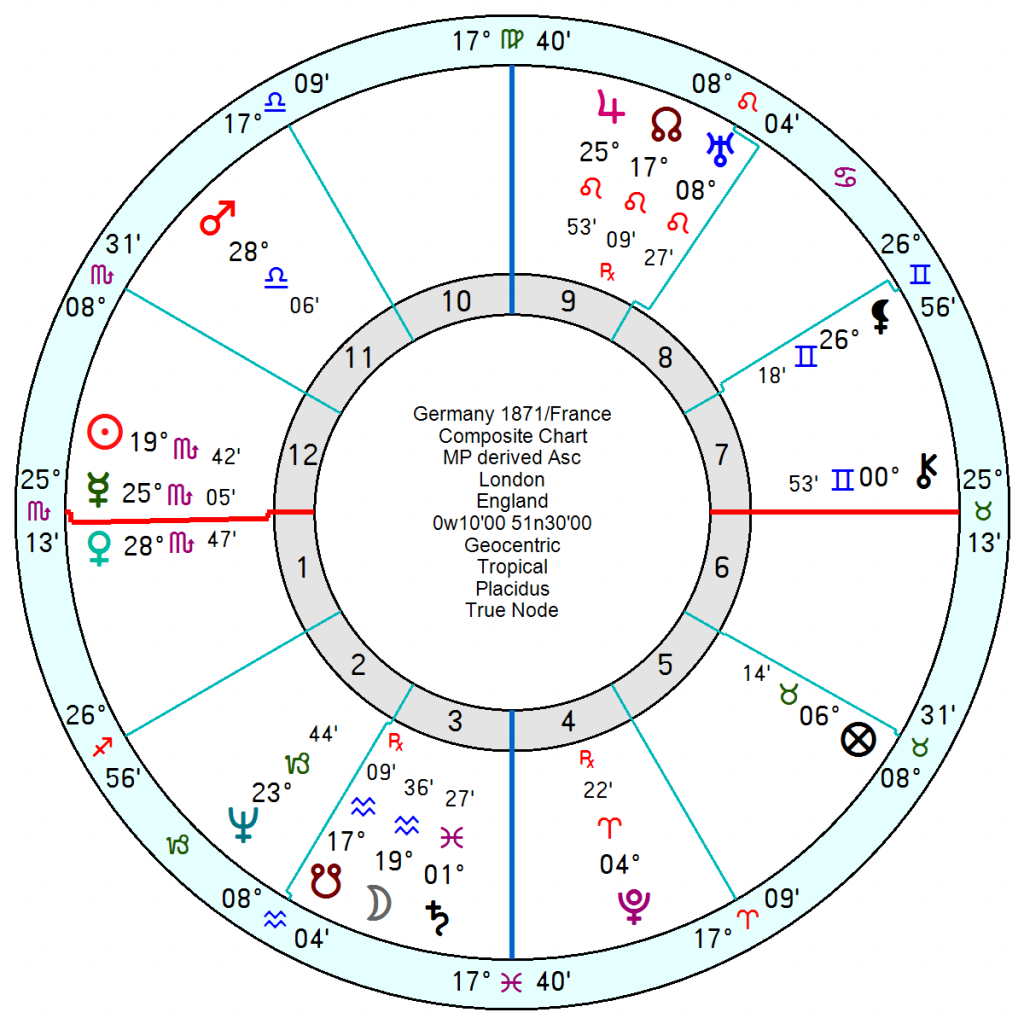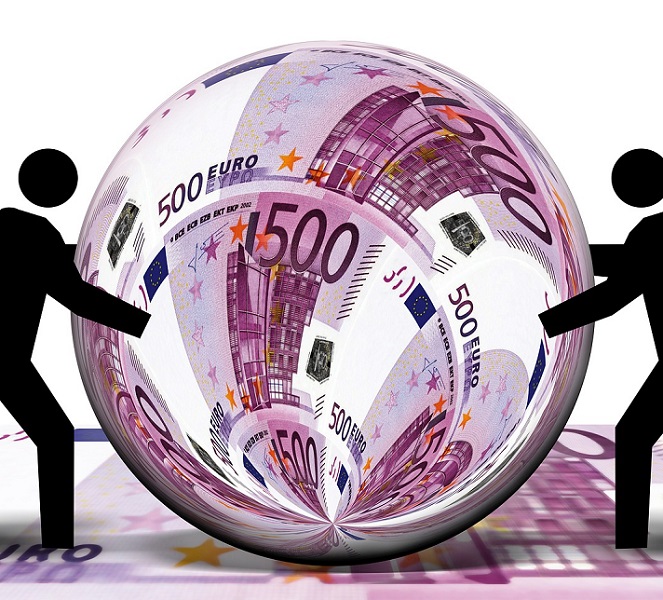



Red lights are flashing as tension rises and rifts widen over the EU’s response to the credit crunch. Eurozone inflation jumped to 10.7pc in October with Germany at 11.4pc which puts it in much the same boat as the UK. The difference being that a single currency necessitates a focused response, impossible when it services disparate economies. Italy with huge debts objects to credit tightening backed by France which has an even bigger debt burden while Germany with its historic fear of inflation demands it.
Thomas Mayer, Deutsche Bank’s ex-chief economist and author of Europe’s Unfinished Currency, said the ECB has already gone beyond the point of no return. He predicts that the EMU experiment will end in much the same way as the Latin Monetary Union in the 19th century. Switzerland eventually pulled out because it lost patience with chronic debasement. The eurozone is a sturdier beast but the pressures are the same. “It can’t survive,” he said.
Germany and France always were about to head into stormier seas in their relationship with an exasperated stalemate continuing on from this year till late 2023; with even more serious rifts and upheavals now and across the New Year, worsening from May 2023 onwards for the following three years. Macron and Scholz are in a bad place as far as agreement is concerned right through till 2024.
Though France is not, despite the comments above, getting on well with Italy for two years ahead; with Macron and Meloni increasingly at odds.
Italy elected far-right, EU-sceptic Giorgia Meloni just as the history-changing tr Uranus Mars North Node was square the composite Sun of the Italy/EU relationship chart. At the very least that will make the next few months disruptive and will continue to generate bad feelings through till 2025.
Germany will harbour grave uncertainties about EU policy through 2023 and is entering a longish spell of aggravated relations with Brussels, worsening in 2025/26.
France and the EU are not faring much better with an exceptionally bumpy ride through the next few months and massive upheavals from May 2023 onwards and worse in 2024.
See previous post: Italy & Germany – EU’s early warning signals (16th July 2022) which suggests that the EU pressure cooker will blow around 2025.

Culture!
Does not the latitude and longitude and therefore the astrology, of a country not influence how the people of a community affect their existence and how they percieve and get along with their neighbours.
Marjorie what do you think will replace the euro? Or will each cou try return to their old currency?
I was thinking about posting this question to questions and comments, but since I want this to be permanent post, this thread suits it quite well. Hence, the question:
Has anyone else “felt” a more general change in discourse on money and debt since Pluto went direct in Capricorn early October? I, for one, have. October is, of course, the time of year most countries and companies start serious budget negotiations, so definitely finance heavy. However, there have been quite a few notable “glitches” in the system, to mention:
– International markets calling Russia’s bluff on natural gas and oil. Europe is currently flooded with natural gas, and prices are plummeting. And while Saudis play their own game, combustible prices are down in the US.
– The richest man in the World finally completing his hostile takeover of Twitter, at 44 billion US$ only to go for a series of rants revealing he obviously doesn’t have an idea on how to monetize the platform. Exchanges with Stephen King – whose work Musk has almost certainly read, and whom, it seems, he genuinely admires – and AOC expose him as that nerd who got money and bought the coolest club in the town not realizing it was the cool people people getting a VIP pass, not the decor that made people come there. And that there need to be bouncers assuring everybody has good time.
What this demonstrates, in my opinion, is how arbitrary the accumulation on riches and means truly is. And people are going to start asking questions on the justification.
I wouldn’t expect anything radical to happen with Uranus in Taurus. But there have been signs of people returning to old fashioned socialist/social left thinking in Europe and developed World. A lot of questioning on distribution of wellbeing.
That’s interesting Solaia Thanks.
I’m somewhat distracted since I am moving house – again – tomorrow. So service will be sporadic though I think the broadband is OK.
There was a piece last year which surprised me at the time: Not what you think of Pluto in Aquarius though it may also be Pluto’s swansong from Capricorn.
Pluto into Aquarius – shock waves through central banks
10th September 2021
I agree with you Solaia. I have noticed a shift in people’s attitudes towards helping others too. And Gen Z definitely has something to say about capitalism. Similarly with the EU, people (particularly in the UK) have been predicting its demise for years, if not decades now. But, as an article in a Dutch quality newspaper reported recently, despite all the drama, the internal squabbles and financial woes, the EU still soldiers on. Somehow the ideal is seen as worth preserving. Support for the EU as an institution has never been higher here. But like Finland, the Netherlands is a small country which in its battle to keep out the sea has always recognised the value of cooperation. I also think that the astrology can sometimes seem a lot more alarming than the reality turns out to be. But not always, of course!
I am hoping it doesn’t blow up badly. the opposing and conflicting forces (the financial ones referred to in this article) will come to fore during times of financial stress.
EU is a great construct , and like many things is in need of reform … The Euro that was brought in to ensure countries have to stick together, has the potential to blow up the project … or at least, bring about a major change.
I don’t understand, with all the love people purport for the EU project, why is there no convergence of Eurozone to a full monetary and fiscal union. Better not to do it by the backdoor (like the EU wide borrowing during covid). But do it by changing relevant treaties. It is not happening means that the support is not as good as it appears outward.
Sweden has been voting against joining the Euro. Denmark has no obligation to join. And Norway and Switzerland do not even want to join the EU.
“I don’t understand, with all the love people purport for the EU project, why is there no convergence of Eurozone to a full monetary and fiscal union.”
Because it means losing power from the national level. Also, while people support the EU, I am not sure that the people identify so much as Europeans that they are willing to lose their national identity.
At the moment, the EU is formed/governed under Treaties signed between Member-States and it is the Member-States who are the “Masters of the Treaties”.
“do it by changing relevant treaties”
If the treaties are opened up, keep in mind that *everything* in the existing treaties, including the things that were already agreed to in the past, is open for negotiations. And the treaties require unanimous agreement among all member-states and their parliaments to amend.
You can bet your boots that there will be at least one awkward squad Member-state or parliament (at the moment, Hungary and Poland) which will make the process very difficult.
And every Member-state will prioritise their own viewpoints. So, for instance, Greece would want to change the rules for the Eurozone to avoid the harshness that it suffered 10 years ago, which Germany would refuse to countenance. Result, stalemate.
That is why even something very minor and inconsequential, such as not moving the European Parliament to Strasbourg and then back to Brussels every month, can’t be changed (France vetoes that, by the way).
And keep in mind that there was a draft EU Constitution proposed in the 2000s, which was lost after it was voted down by the French and Dutch. Many of its proposals were incorporated into the Treaty of Lisbon in 2009, the last time the EU treaties were successfully amended.
And the more new members join the EU, the harder amendments will get, as there are more veto players (the governments and parliaments of each new member-state).
“Full monetary, economic, fiscal and political union” was laid down in the Treaty of Rome as the ambition of what was then the EEC. A ‘federal Europe’ in fact, the idea being that the former nation states being the equivalent of counties, for example, in the administrative unit known as the UK.
The intent of the single currency – despite the cover story made at the time about it being ‘good for the economy’ – was to act as a lever in hastening full political union.
Yes, Solaia, I’ve noticed something changing too. Also, what looks like a big wrestling match between the desire to change and those resisting it and wanting to go ‘back to normal’ post Covid restrictions. I remembered this, from 2016:
“If we look on a global basis, in the west we have probably hit peak stuff. We talk about peak oil. I’d say we’ve hit peak red meat, peak sugar, peak stuff … peak home furnishings,” Steve Howard said at a Guardian Sustainable Business debate.18 Jan 2016
Steve Howard was the Chief Sustainability Officer at IKEA at that time. This was the era of the Pluto in Capricorn square Uranus in Aries. Pluto in Capricorn representing traditional capitalism perhaps, Uranus in Aries simply shouting out for something new? The Saturn in Sagittarius square Neptune in Pisces was around too – maybe creating some deceptions and confusion, alongside a desire for something more meaningful or spiritual in life? While 2016 seems like a century ago (!) I think the seeds were planted. Perhaps we’ll see some flowering around the time of Uranus in Gemini trine Pluto in Aquarius in 2026?
“how arbitrary the accumulation on riches and means truly is.”
It would hardly help pointing out that it has ever been thus.
That is why Fortuna, the Roman goddess of fortune, is depicted blind-folded and standing/moving about on a sphere. She can’t see where the fortune that she spills over is going, nor can she control it, as she tries to remain standing over a sphere that is rolling about in all directions.
“But there have been signs of people returning to old fashioned socialist/social left thinking in Europe and developed World.”
What I see is that people are returning to more left-leaning *economic* thinking, but moving to the right on *social* issues.
The European Union chart (1 November 1993, Brussels, midnight central european time), has a horrible T-square:
Mars conjunct Pluto at 24 Scorpio in the 4th house, opposite Moon at 24 Taurus in the 10th, all square Saturn at 23 Aquarius in the 7th.
During the Brexit referendum, transiting Mars was stationary at 23 Scorpio.
At the moment transiting Saturn is at 18 Aquarius, approaching the natal Saturn. It will hit 24 Aquarius in Jan 2023, when it will square the natal Mars-Pluto, as well as the Moon.
Forgot to add, transiting Uranus in Taurus will aspect all elements of that T-square in 2023 too.
In 2024 only, I expect because Uranus will reach till 22 Taurus only in 2023.
It also has a retrograde Mercury, if I recall correctly.
“Thomas Mayer, Deutsche Bank’s ex-chief economist and author of Europe’s Unfinished Currency, said the ECB has already gone beyond the point of no return. He predicts that the EMU experiment will end in much the same way as the Latin Monetary Union in the 19th century.”
I really need to meet this person and buy him a pint. That has been my argument from the start of the EMU. Common currencies have been tried before in Europe, from the Scandanavian Monetary Union to the Latin Monetary Union. It never ends well.
Economics and monetary policy is inexorably linked to political independence/freedom. And the only way to make a monetary/currency union work is a political union, i.e. loss of political independence. Let me see how many Germans, Greeks or French want to see an end to their country and decisions for them being made with Polish and Italian votes, for instance.
I would be interested to see if the countries within the EU that are not a part of the Eurozone (Poland, Czechia, Sweden, Denmark, etc) come out of the next recession better than countries within the Eurozone.
And as the EU made clear this week, if Scotland wants to join the EU as an independent country, they will be obliged to join the Euro. I wish them good luck.
“And as the EU made clear this week, if Scotland wants to join the EU as an independent country, they will be obliged to join the Euro. I wish them good luck.”
Just wondering, if not, at that point, English Pound or Euro, what would the currency of independent Scotland be, then? Setting up a currency just isn’t that simple. We in Finland have experience on that from 1860’s, when Finnish Markka was established in autonomic Finland basically to wipe out Swedish Crown that was still popular after 50 years of Russian rule from the money market. The need to stabilize the currency on international markets led what was, by far, the largest human disaster in Finland in the past 300 years -and there have been some -, when Board of Directors of newly founded Bank of Finland refused to “burden” the system with loans to feed mostly rural population when the crop failed twice in 1866 and 1867. It led to death of 15 per cent of population on hunger and diseases. While this was 160 years ago, it shows how one, not even “black swan” event can put stress on still fragile system.
I may also add it put current woes on Euro resilience to some kind of perspective. We are not there with Euro.
The Scottish Nationalist Party’s plan says that the independent Scotland will continue using the British pound until an arbitrary point in the future. It will be switching to Scottish pound at that point. The plan assumes that there is no need to join the Euro unless Scotland wants to.
Essentially, Scotland is planning to become independent but outsource the management of its currency to UK. If it needs to have any say over the running of the currency (say, interest rates), it has to make a lot of concessions to the UK.
Thank you to responding to that point, Sounh.
As I understand it, one of the arguments for remaining in the (British) Union and one that the SNP have struggled with, is that leaving the pound sterling has been historically unpopular (though I do not know if that is still the case after the fiscal event crash two months ago).
So the SNP has come up with the via-media that Sounh has stated above; that they remain with the GBP for a period, then move to a Scottish pound and then eventually to the Euro. As I understand it, the last two are a requirement for joining the EU, so Scotland has no choice in the matter.
Scotland is not really looking at independence. It has a choice between being in a Union with either the UK or the EU and following the currency rules and destinies of their respective currencies.
All SNP’s grand statements on whether or not they will join the Euro or continue with the British pound, are just hot air. The EU has made its position clear, notwithstanding Ms Sturgeon’s assertion that they are wrong.
There is no guarantee that they will be allowed to continue with the British pound. There are all sorts of commitments to using a currency, so having a ‘foreign’ country tagging along until it fancies something else is unlikely to be acceptable to the remaining countries of the UK.
Thanks Marjorie – very interesting, if also worrying. The ructions and stresses you describe are reflected in various charts. My slightly random selection:
Business Euro, January 1999: Neptune 1 Aquarius. Already having a Pluto transit to its delightful Venus 25 Capricorn square Saturn 26 Aries.
Euro, January 2002: Moon 0 Leo. Both charts await Pluto entering Aquarius next year.
Treaty of Rome, 1957: Uranus 2 Leo, Neptune 1 Scorpio. More Pluto.
Maastricht, November 1993: Pluto conjunct Mars at 24 Scorpio – clearly no astrologer involved with this chart! Tr Uranus opposes this in 2024/5. The MC is 2 Taurus, awaiting a Pluto transit too.
As you write – “that the EU pressure cooker will blow around 2025.” I’m hoping something new will then emerge from the ashes….. Saturn and Neptune, both newly arrived in Aries, will then be conjunct the gung-ho lets go Jupiter in Aries of the European Political Community. Its first meeting was 9th May, 2022. Uranus in Gemini could help with a revolution in communications? I can see there’s a danger of much hot air, but you never know.
Those EU charts are all under a lot of stress as Uranus moves through Taurus and Pluto transits towards Aquarius. In generation terms Pluto is moving to square that Neptune Scorpio in all the natal charts of the late 1950s including that for the 1957 European Economic Community. Their core beliefs and assumptions are being challenged. Interesting that this is also the area of the Chart where the October 2022 solar eclipse occurred. It looks increasingly like a harbinger of change.
Thanks Hugh, yes I agree. A shifting era.
I was interested to see that planetary changes of sign, plus transits to the founding charts, also affected the Latin Monetary Union, 23 December 1865, and the Scandinavian Monetary Union 5th May 1873 – both mentioned by UMM in her post above. They both ended in the 1920’s, a very different era from the mid 19th century. The Latin Union was finally disbanded in 1927. Uranus newly arrived in Aries squared its founding Uranus at 1 Cancer and Sun at 1 Capricorn, Mercury 2 Capricorn.
The Scandinavian Union had a t-square of Uranus 2 Leo, opposing Saturn 2 Aquarius, squaring onto Mars at 4 Scorpio. By 1924 Saturn in Scorpio challenged this. Neptune transiting in Leo was conjunct its confident Jupiter at 21 Leo, and square its very financial Pluto at 20 Taurus. Neptune had already squared its Sun/Venus in Taurus, loosening the foundations of its confidence and ideals perhaps.
I think we are seeing something similar unfolding now.
“Their core beliefs and assumptions are being challenged. Interesting that this is also the area of the Chart where the October 2022 solar eclipse occurred. It looks increasingly like a harbinger of change.”
One thing I’ve noticed is that economists in general are scratching their heads. Not only in the EU, but larger context. That said, “dark economics” seems to be incredibly strong, as demonstrated by Russian economy not having completely collapsed yet. I wouldn’t be surprised if this ultimately saved at least Italy, too.